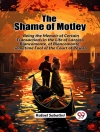Franz Kafka was a German-speaking Bohemian Jewish novelist and short-story writer, widely regarded as one of the major figures of 20th-century literature. His work, which fuses elements of realism and the fantastic, typically features isolated protagonists facing bizarre or surrealistic predicaments and incomprehensible socio-bureaucratic powers, and has been interpreted as exploring themes of alienation, existential anxiety, guilt, and absurdity.
Few of Kafka’s works were published during his lifetime. In his will, Kafka instructed his executor and friend Max Brod to destroy his unfinished works, but Brod ignored these instructions. His work has influenced a vast range of writers, critics, artists, and philosophers during the 20th and 21st centuries.
The critic August Nemo selected seven emblematic short stories of this author for his appreciation:
The Metamorphosis
A Hunger Artist
In the penal colony
The Judgment
Before the Law
A Country Doctor
A Report to an Academy
เกี่ยวกับผู้แต่ง
Born on July 3, 1883, in Prague, capital of what is now the Czech Republic, writer Franz Kafka grew up inan upper middle-class Jewishfamily. After studying law at the University of Prague, he worked in insurance and wrote in the evenings. In 1923, he moved to Berlin to focus on writing, but died of tuberculosis shortly after. His friend Max Brod published most of his work posthumously, such as Amerikaand The Castle.












